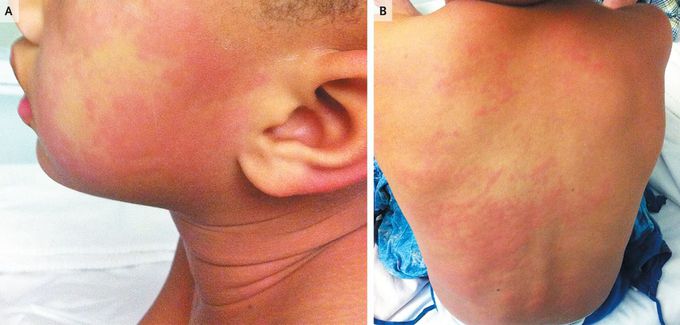


Scombroid Poisoning
A 6-year-old boy was admitted to the hospital with generalized itching and rash for 2 days after eating canned mackerel. Additional symptoms included fever, abdominal pain, painful and swollen hands, and swollen eyes. Symptoms improved with ibuprofen and antihistamines but continued to relapse and remit. Examination showed edematous, urticarial plaques intermixed with diffuse flushing Neither discrete urticarial wheals nor lymphadenopathy was observed. The conjunctivae and oral cavity were not involved. The history and presentation led to the diagnosis of scombroid poisoning. Supportive care was continued, with sustained improvement of his symptoms overnight. The patient was discharged the next day. Scombroid poisoning is caused by the consumption of inadequately preserved or refrigerated fish. Other nonspecific symptoms include flushing, edema, tachycardia, headache, paresthesia of the mouth, abdominal pain, nausea, and diarrhea. Bacteria in the fish contain a decarboxylase enzyme that converts histidine to histamine, which is resistant to cooking and freezing. Supportive treatment includes antihistamines, fluids, and antipyretic agents. Epinephrine should be reserved for associated bronchospasm.
I would think the differentiating factor would be the manifestation of fever.
Thank you for sharing this interesting case as I learned the bacteria in the fish produce an enzyme, histamine, which is resistant to both cooking and freezing.


